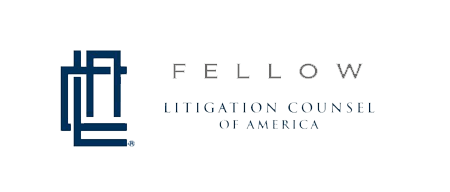Defective products can lead to serious injuries or illnesses for consumers. Companies, manufacturers, retailers, and distributors all have a responsibility to ensure that products are safe to use and consume. However, it is possible for corporations to cause harm to consumers even if a product is not directly defective because they may have marketing defects that affect the way a product is advertised and sold.
What is a Marketing Defect?
Marketing defects represent a defect in any way that a product is marketed. This can occur in a wide variety of ways.
As consumers, we rely on the information put forth about a product when making a decision about whether or not to use it for ourselves and our family members. This includes every type of product you can imagine, including toys, vehicles, appliances, computers, prescription medications, foods and beverages, and more.
However, a marketing defect will occur if a product has inadequate warnings or improper instructions regarding its use. Companies and manufacturers of products have a duty to let consumers know how to use a product and warn them about any dangers that are not already obvious related to the product usage. Marketing defects typically occur when a product is completely safe and being used for its intended purpose, but there are unknown dangers when they are used in unintended ways. Without adequate warnings, everyday products can become very dangerous. The U.S. Consumer Product Safety Commission develops industry safety standards and “protects the public against unreasonable risks of injuries and deaths associated with consumer products.”
Examples of Marketing Defects
There are various types of marketing defects that can occur with products that we use in consume every day. Some of the most common marketing defects include:
- Failure to warn. This is one of the most common marketing defects and one of the most dangerous. Products that can be hazardous should include adequate warning labels to inform consumers of the dangers. This includes listing the side effects of medications, which medications certain drugs interact with, allergen warnings and foods and beverages, and more.
- Inadequate use instructions. Consumers must be provided with information about how to properly use a product. Many items can be hazardous if they are used incorrectly, and retailers or manufacturers could be held liable if they fail to provide proper instructions for product usage.
- Misleading advertisement. Companies can be held liable for any injuries or damages if their products fail to adequately reflect the use of the product and any potential hazards.
Work With a Product Liability Attorney
If you or somebody you care about has been injured due to a marketing defect associated with a product, you need to speak to a product liability attorney immediately. A skilled product liability lawyer will work diligently to examine the facts of your case. They will investigate your particular product and look into whether or not this has been a continual issue for the associated company. The ultimate goal is to make sure that you recover compensation for your losses, including coverage of medical bills, lost wages, property damage expenses, pain and suffering damages, and more.
There is no set amount of compensation available in these situations. The total amount paid out to product liability victims will vary depending on a range of issues, including the severity of the injuries, the level of property damage, and how much pain and suffering is involved. You have a limited amount of time to file these claims in civil court, so if you have been injured, please speak to a New Mexico personal injury attorney as soon as possible.
 Knowledge Experience Compassion Service
Knowledge Experience Compassion Service 






